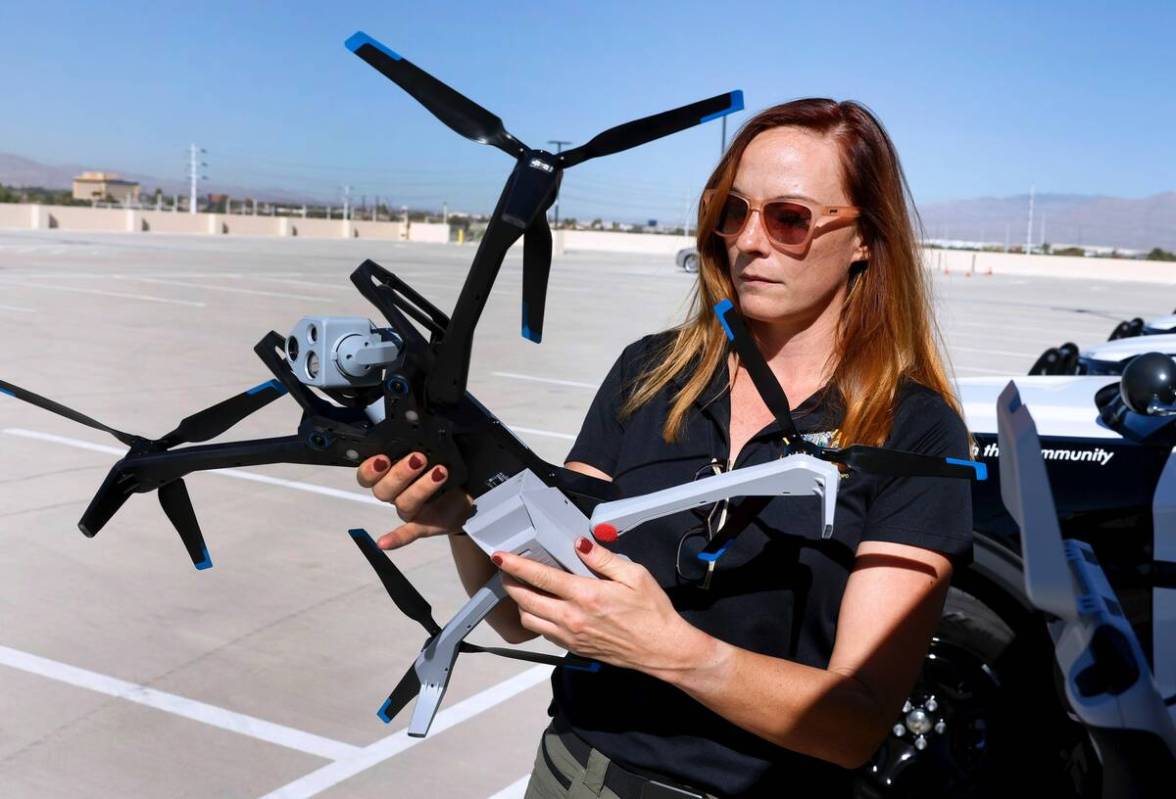Eyes in the sky: Metro using drones as first responders

The mask-clad man, armed with a crowbar, was trying to break into a car in the parking lot of the Metropolitan Police Department headquarters.
When an officer approached, he fled, then tried to hide in a parking garage. But he was no match for police personnel operating a drone outfitted with a camera who spotted him, allowing another officer to take him into custody.
This wasn’t a real car burglary — the suspect was Metro Corrections Officer Christopher Jimison — but a demonstration of a drone as first responder unit that started using drones to assist with calls on Oct. 3.
The drone as first responder idea represents a “paradigm shift in police work,” program manager Steven Oscar said.
“You can send a drone potentially to a scene or a call for service and (use) that drone to (say), ‘Hey, there’s nothing going on’ or ‘You need more assets’ before anybody even shows up,” he added.
Metro previously used drones to document crime scenes. Police can also use them for search and rescue missions; to respond to reports of assaults, burglaries and car thefts; to provide overhead surveillance of events; and to talk to suspects during SWAT calls. An attachment is able to break windows. All drones are outfitted with some sort of camera, according to Oscar.
Oscar said using drones can help reduce police shootings and use-of-force incidents.
And he stressed that the drone as first responder unit doesn’t do “random surveillance.” It responds to calls, allowing other officers to have a heightened awareness of a situation.
Officials said Metro does not plan on weaponizing drones.
The Federal Aviation Administration prohibits doing so, Oscar said.
“We are not putting weapons on the drone,” said Assistant Sheriff Dori Koren, adding that the drones are intended to save lives.
In a September interview with the Las Vegas Review-Journal, Sheriff Kevin McMahill said he thought concern about weaponizing robots or drones stemmed from the Ukraine-Russia war, where drones have been used.
“I think that the way people are utilizing those drones to kill other people, I don’t think that has a place in American policing,” he said.
The drones have their limits, according to Oscar, including wind, an inability to go fast enough to pursue vehicles and the small size of the current drone as first responder team.
And Metro is trying to balance technological advancement and privacy, Koren said.
“We care deeply about privacy, civil rights, civil liberties,” he said. “And we care deeply about balancing the protections we expect our agency to have and also to make sure that our public has.”
Contact Noble Brigham at nbrigham@reviewjournal.com. Follow @BrighamNoble on X.